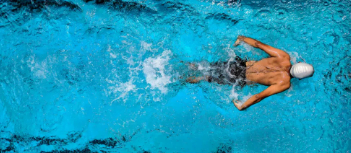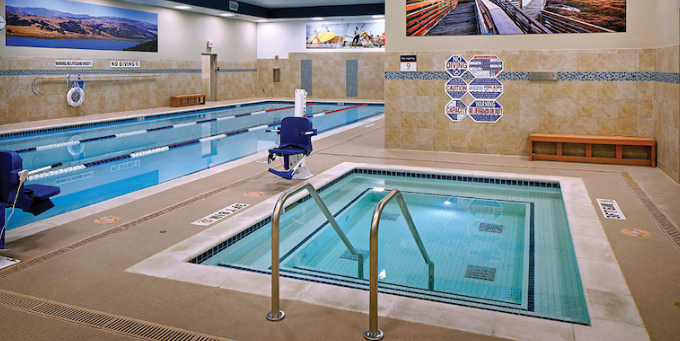Saunas can be used after working out, which negates the advantages of taking creatine supplements. Sweating may lessen the obvious effects of sauna and creatine water retention, but it doesn’t cause dehydration or remove the supplement’s performance-boosting benefits. Using a sweat lodge in addition to taking creatine is safe.
The size of muscles can be diminished by sweating because of decreased water retention, although total growth may not be diminished. Using sauna and creatine in conjunction with supplements is safe and beneficial
Table of Contents
Sauna and creatine (according to science)
- Hydration Importance: Using sauna and creatine supplements can make the body want more water. Sweat causes perspiration, which causes fluid loss, and creatine pulls water into muscle cells. For the body to operate properly, it is necessary to maintain appropriate amounts of hydration.
- Muscle Growth: By raising the reserves of creatine phosphate in muscle cells, creatine supplementation is believed to improve the strength and size of muscles. Sweat lodges do not directly promote muscle development but indirectly assist in muscle repair by improving circulation and blood flow, which may facilitate the delivery of nutrients.
- Improved Blood Flow: Using a hot room can increase circulation and blood flow, which may help transfer creatine to muscle tissues and perhaps increase its efficacy in encouraging muscular development.
- Safety: Using a sauna and creatine supplements is safe as long as appropriate hydration is maintained. Before beginning any supplement regimen, including creatine, those with pre-existing medical issues or those who are pregnant should speak with a healthcare provider.
Using a sauna and creatine supplements together can be safe, as long as proper hydration is maintained. Individual reactions could differ. It is recommended to consult with a medical professional, particularly for those with underlying medical conditions.
Knowledge of Creatine
The body converts the naturally occurring substance creatine to creatine phosphate within muscle cells. When engaging in high-intensity exercises like weightlifting, adenosine triphosphate production (ATP) depends on this creatine phosphate. Many fitness enthusiasts and athletes choose to increase their stocks of creatine through supplements to improve their performance and speed up muscle building.
Use of sauna while taking creatine
Water retention occurs when you take creatine because it draws water into your muscles. A small change in concentration does not affect the risk of dehydration. Supplementing with creatine helps to avoid the symptoms of dehydration, and it has no negative consequences when done. Consuming creatine encourages the retention of water, giving the illusion of fuller skin. Raising your body temperature in a sweat room can aid blood flow and circulation.
Increased blood flow makes it easier for creatine to get to muscle cells and enhance its effects. Hydration is important for all types of sweat lodges. Infrared rooms emit heat deeper into muscle tissue, augmenting the advantages of creatine. It is important to maintain an appropriate level of hydration. It is acceptable when using sauna and creatine supplements. Dehydration might result from not drinking enough water when using a steam room in addition to creatine supplements. Hydration helps creatine deliver fluid to muscles.
Use an infrared sauna when taking creatine
When using infrared saunas in conjunction with creatine supplementation, there are a few important things to keep in mind:
Make staying hydrated a priority. This is important if you use an infrared sauna and take creatine. Drink a minimum of two glasses (16 oz) of water both before and following each sauna session. Keep an eye on your energy levels, and pay special attention to your body’s signals and energy levels to prevent heat exhaustion. Get out of the sauna right away if you feel too tired. Session duration should be limited to no more than 10 minutes, three times a week.
Using the steam room with creatine is important. To avoid dehydration and overheating, shorter exposure durations may be necessary in infrared saunas due to their higher temperatures. In conclusion, research indicates that using creatine supplements along with team lodge use does not have any negative impacts. Emphasize staying hydrated, pay attention to your body’s signals, and exercise caution to guarantee a safe and helpful experience.
Disadvantages of creatine use
The following disadvantages of creatine use are given below:
- Water Retention
- Gastrointestinal Distress
- Weight Gain
- Kidney Strain
- Dependency
Drink more water while using the sauna and creatine
Hydration is essential to maximizing the advantages of using a sauna and creatine supplements. Using creatine may affect your body’s water balance, and using a sauna may increase perspiration and result in fluid loss. Make sure you’re getting enough fluids to enhance the impact of these techniques.
A 2009 study stressed drinking enough water in addition to creatine supplements. The findings of the study indicated that increased levels of creatine may also increase the body’s need for water and the need to drink plenty of fluids when following a creatine regimen. When utilizing the sauna, it’s crucial to be well-hydrated. Rehydrating after a hot room session is essential to avoid dehydration, which causes headaches, lightheadedness, and other negative side effects after a workout.
Research indicates that as long as individuals drank enough water, there was no negative impact from using sauna and creatine supplements. Consuming more fluids might make up for fluids lost through perspiration. Drinking enough water is crucial for enabling creatine to be delivered to muscle cells in an efficient manner, which promotes strength and muscular development. The risk of dehydration during sauna sessions can be minimized by maintaining proper hydration. When using creatine supplements, drink water before and after steam room sessions. You should also drink water throughout the day.
To completely comprehend the relationship between utilizing a sauna and creatine supplements, it doesn’t seem to be a clear risk for healthy people. With the possibility of dehydration, it’s imperative to take safety measures. Make sure you are drinking enough water, especially if you plan to do dry-room sessions after taking creatine.
FAQs
Frequently Asked Questions are given below:
Does creatine increase body heat?
This research shows no variations in body temperature with creatine supplementation, and several groups (8, 10, 11) even showed that creatine reduced the rise in body temperature during exercise in hot conditions.
Does creatine cause sweaty side effects?
It may cause you to feel exhausted, become dehydrated, and perform less well. Wet clothing and body odor are two more obvious indicators of perspiration that some people find unpleasant.
Does heat affect creatine?
There is a misconception in the creatine community that heat reduces its efficacy; heat does not affect creatine because it is an extremely stable material. There are two benefits: warm liquid dissolves creatine considerably more quickly and easily than cold liquid, so everyone wins.






